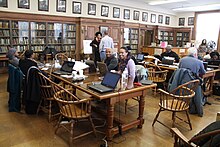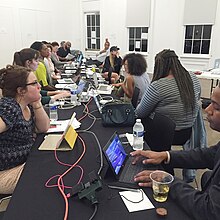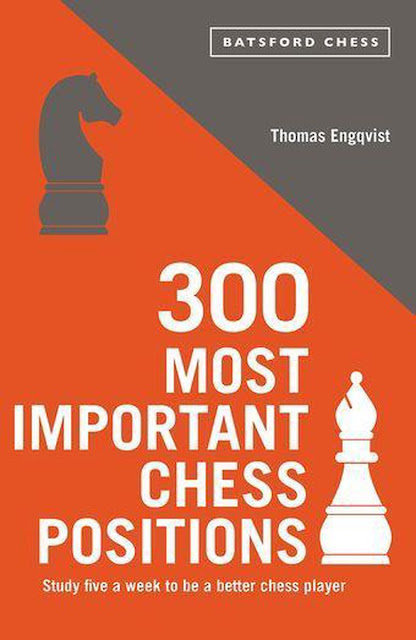Chess by Gaslight
Chess played by black people and creative chess content by black is invisible as the world is being gaslit by the chess community at large. Nobody cares that a black person's IQ is just as likely to be genius-level than a White, Indian, Asian or indeed any race. We just get given a narrative as black people that we are inferior. Well, I am a black person and I'm not inferior in Chess or any other human endeavor.
I recently was like everyone else invited to talk to the esteemed co-founder of Lichess, Thibault Duplessis in his "Ask me Anything" session. Well, I asked him why my chess creative product, a chess puzzle game now called Puzzle Rush was named Puzzle Storm on his server without any credit to me the original owner. He unsurprising had nothing to say to that question that shed any light on why black people's creative efforts are taken without a word.
As if that wasn't enough a person commenting on my question to Thibault Duplessis said I was "delusional". It got me thinking about the elite of the chess fraternity are gaslighting the entire world about Chess. In the way that Chess achievements that are celebrated in the Chess world are very specific. We all expect chess prodigies to be constantly discovered in India, Russia, any European country, and in the United States. We expect now and again to see prodigies coming from other places but not much is expected from Africa. Why? What is inferior about African people that make it much less likely to produce people able to move 32 pieces on a 64 square board? Well nothing but the narrative is told by the Chess community that this is so.
Why shouldn't a Nigerian from Africa have created Puzzle Rush the world's greatest chess puzzle feature? Well, nothing. However, the narrative is that black people don't do well in intellectual pursuits if you consider Chess as an intellectual pursuit.
When the rare exception occurs and the Chess world does decide to credit a black person with succeeding in the world of chess or creating creative chess content or chess products it is celebrated as an exception, an aberration, a miracle. This is the gaslighting that happens and the lie that is told to us over and over again.
Black people are just as intelligent and creative as any other race of people and have contributed immensely to Chess but have not had most of their contribution recognized. If you look at Wikipedia for example
Racial bias on Wikipedia
The examples and perspective in this article deal primarily with the United States and do not represent a worldwide view of the subject. (May 2015) (Learn how and when to remove this template message) |
The English Wikipedia has been criticized for having a systemic racial bias in its coverage. This stems in part from an under-representation of people of color within its editor base.[1] In "Can History Be Open Source? Wikipedia and the Future of the Past," it is noted that article completeness and coverage is dependent on the interests of Wikipedians, not necessarily on the subject matter itself.[2] The past president of Wikimedia D.C., James Hare, noted that "a lot of black history is left out" of Wikipedia, due to articles predominately being written by white editors.[3] Articles that do exist on African topics are, according to some, largely edited by editors from Europe and North America and thus reflect only their knowledge and consumption of media, which "tend to perpetuate a negative image" of Africa.[4] Maira Liriano of the Schomburg Center for Research in Black Culture, has argued that the lack of information regarding black history on Wikipedia "makes it seem like it's not important."[5]
| Part of a series on |
| Discrimination |
|---|
 |
Different theories have been provided to explain these racial discrepancies. Jay Cassano, writing for Fast Company magazine, argued that Wikipedia's small proportion of black editors is a result of the small black presence within the technology sector, and a relative lack of reliable access to the Internet.[5] Katherine Maher, executive director of the Wikimedia Foundation, has argued that the specific focuses in Wikipedia's content are representative of those of society as a whole. She said that Wikipedia could only represent that which was referenced in secondary sources, which historically have been favorable towards and focused on white men.[6] "Studies have shown that content on Wikipedia suffers from the bias of its editors – [who are] mainly technically inclined, English-speaking, white-collar men living in majority-Christian, developed countries in the Northern hemisphere".[7]
In addition to the racial bias on Wikipedia, public encyclopedias are generally vulnerable to vandalism by hate groups like white nationalists.[8]
Research findings and analysis[edit]
Few academic studies have focused on racial bias on Wikipedia. In an academic analysis of the Wikipedia edit history of Origins of the American Civil War, one conclusion was that, despite aiming for a neutral point of view, Wikipedia content can be a result of a "moral economy of crowdsourcing."[9] During a course and subsequent academic article examining women's historical representation on Wikipedia, it was observed that some editors have an "American exceptionalism" bias that prevents representation of minority groups' histories on Wikipedia.[10] In a 2014 study attempting to quantify phenomenology of racism, the Wikipedia microaggression article and corresponding talk page were used as an example that the testimonies of people of color and individuals from marginalized communities are oftentimes not adequate for white listeners to believe them.[11] The concerns on the talk page focused on neutrality because biases white people experience were not discussed and the disbelief of the existence of microaggressions, despite their prevalence at the time in academic journals.[11][12][13][14]
According to Maira Liriano, the associate chief librarian at New York City's Schomburg Center, one of the biggest challenges is getting new editors to keep editing Wikipedia after the edit-a-thon is over.[7] One challenge with retaining new editors is that the "[n]erdy white guys" who predominate as Wikipedia editors "…aren't always warm and nurturing" to new editors.[7] For example, when new editors add content on Black history, their content may be deleted by established editors. As well, when new editors are trying to advocate for the inclusion of Black history content on Wikipedia's talk pages (each article has an associated talk page for discussion of changes), the "[c]omments [to new editors] on [Wikipedia article] talk pages can be very blunt."[7] An issue for women of colour is that "women in many communities have less leisure time than men," according to Siko Bouterse, the director of community resources at the Wikimedia Foundation.[7]
Another challenge for editors trying to add Black history articles to Wikipedia is the requirement that potential article topics, such as historical individuals or events, meet Wikipedia's "notability" criteria.[7] Sara Boboltz of HuffPost wrote that the Wikipedia notability criteria "…is a troubling problem for those fighting for more content about women and minorities", because "…there's simply less [published] documentation on many accomplished women and minorities throughout history -- they were often ignored, after all, or forced to make their contributions as someone else's assistant".[7]
Maher stated that one issue is that "…content on Wikipedia has to be backed up by secondary sources, sources that she says throughout history have contained a bias toward white men"; "…people of color have not been represented in mainstream knowledge creation or inclusion in that knowledge," as "…encyclopedias of old were mostly written by European men."[6] Another issue is the "often abusive relationships between editors" on talk pages, which "…can make Wikipedia a less than welcoming place for …minority groups looking to get involved" in editing Wikipedia.[6] The Wikipedia editing "...community can also appear hostile, both to outsiders looking in and to those involved in it" by editing articles; indeed, article "[t]alk pages [discussions about articles] routinely devolve into seemingly petty arguments".[15]
There has been "...criticism of bias [on Wikipedia], both on individual pages [articles] and as a systemic mind-set that the editing network has as a whole."[15] William Beutler, author of the blog The Wikipedian and a consultant on Wikipedia issues for clients, states that "...certain areas of Wikipedia, including certain political areas of Wikipedia...tend to be controlled by a small number of editors who tend to see things the same way."[15] Various communities have raised concerns about "...Wikipedia and its editors, saying that the pages had obvious systemic bias against them."[15]
According to Peter Reynosa, "there is an underrepresentation of Latinos who write for Wikipedia." He asks,
In 2018 the Southern Poverty Law Center criticized Wikipedia for being "vulnerable to manipulation by neo-Nazis, white nationalists and racist academics seeking a wider audience for extreme views."[17] According to the SPLC, "Civil POV-pushers can disrupt the editing process by engaging other users in tedious and frustrating debates or tie up administrators in endless rounds of mediation. Users who fall into this category include racialist academics and members of the human biodiversity, or HBD, blogging community... In recent years, the proliferation of far-right online spaces, such as white nationalist forums, alt-right boards and HBD blogs, has created a readymade pool of users that can be recruited to edit on Wikipedia en masse... The presence of white nationalists and other far-right extremists on Wikipedia is an ongoing problem that is unlikely to go away in the near future given the rightward political shift in countries where the majority of the site’s users live."[17] The SPLC cited the article Race and intelligence as an example of the alt-right influence on Wikipedia, stating that at that time the article presented a "false balance" between fringe racialist views and the "mainstream perspective in psychology."[17]
In June 2020, Wikipedia was described in Slate as a "Battleground for Racial Justice" in response to criticisms of neutrality, coverage of George Floyd and his killing, Black Lives Matter, and article deletion nominations for the founders of Black Birders Week.[18] While Wikipedia editors and users grapple with how the idea of neutrality affects coverage of racial justice, journalists and newsrooms are similarly working to differentiate between objectivity and truth.[18][19][20] In a 2020 interview with Built In about what the rest of the internet world can learn from Wikipedia, the co-editor of the book Wikipedia @ 20, Jackie Koerner, said that "people sometimes use neutrality to silence voices" when speaking about Wikipedia's coverage of civil rights-related topics, like police brutality.[21][22]
Geographical bias[edit]
A 2009 article by Mark Graham in The Guardian presented a color-coded map of the world that illustrated the disparity between the numbers of geotagged Wikipedia articles for countries from the Global North and from the Global South. Graham wrote,
Additionally, in a 2010 study, an analysis of Wikipedia people edits revealed that Asia, as the most populous continent, was represented in only 16.67% of edits. Africa (6.35%) and South America (2.58%) were equally underrepresented.[24]
Responses[edit]
Attempts have been made to rectify racial biases through edit-a-thons, organised events at which Wikipedia editors attempt to improve coverage of certain topics and train new editors. In February 2015, multiple edit-a-thons were organised to commemorate Black History Month in the United States.[25] One such edit-a-thon was organized by the White House to create and improve articles on African Americans in science, technology, engineering and mathematics (STEM).[6] The Schomburg Center, Howard University, and National Public Radio, also coordinated edit-a-thons to improve coverage of black history.[3] "Wikipedia editors… have held 'edit-a-thons,'" to "....encourage others to come learn how to…contribute content on subjects that have been largely ignored."[7] Liriano has endorsed Wikipedia edit-a-thons, stating that for Wikipedia's content to "…be representative, everyone has to participate."
In 2015 and 2016, the Schomburg Center held a "Black Lives Matters" edit-a-thon to coincide with Black History Month. Volunteer editors added coverage about Black historical individuals and about key concepts in black culture (e.g., about the Harlem Book Fair and about Black costume designer Judy Dearing).[7] New articles about Black history and Black historical individuals were also created. The 2016 edit-a-thon was organized by AfroCROWD.[26]
Wikipedia editors Michael Mandiberg and Dorothy Howard have organized diversity-themed edit-a-thons to "…help raise awareness of some of the glaring holes on Wikipedia, and the need for people with diverse backgrounds and knowledge to fill them".[6] Liriano stated "It's really important that people of color know that there's this gap" of coverage of Black history on Wikipedia "…and they can correct it" by participating as editors.[7] In the US, the National Science Foundation has provided $200,000 to fund research on the issue of bias in the coverage of topics in Wikipedia.[7] The National Science Foundation has commissioned two studies of why there is bias in Wikipedia editing.[6]
The Wikimedia Foundation is trying to deal with the issue of racial bias in Wikipedia. In 2015, it was reported that the Wikimedia Foundation made numerous grants "…to organizations in the "Global South"—including Africa, Latin America, Asia and the Middle East—with plans to improve [coverage of Global South topics in] Wikipedia."[7] While Wikipedia supports these edit-a-thons, the organization has always stressed that adequate citations must always be present and neutrality must always be maintained.[16] Wikipedia co-founder Jimmy Wales has stated that the Wikimedia Foundation has "completely failed" to meet its goals of resolving the lack of diversity amongst Wikipedia editors.[6]






Comments
Post a Comment